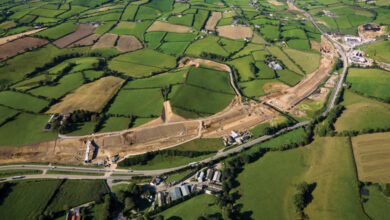Planning reformed
 Turley’s Michael Gordon examines the implications of the change for the interested parties in the planning system.
Turley’s Michael Gordon examines the implications of the change for the interested parties in the planning system.
Planning has been repatriated to local government. For the first time in a generation planning decisions will be made by committees of local Councillors. It has been a long time coming but we are here at last. ‘Normalisation’, ‘devolution’, ‘democracy’ – however you want to characterise it, the planning landscape in Northern Ireland has changed forever. So how does the change affect those involved in the process?
Applicants
There has been a race on to try to get planning permission by 31 March. Some have completed the course. Many, however, won’t have got over the finishing line. Hundreds of cases have been caught up in ‘process’, perhaps recommended for approval by planners but deferred at Council, and so destined to make an interesting start for new Councils as they pick up the baton.
Still others will be on the list of applications ‘retained’ for decision by what’s left of the Department of the Environment. Some will prefer this as a known quantity, save for the twist at the end which will see new Councils play a role, should it choose. A select few might have preferred the new Council to have the opportunity to demonstrate its decision-making efficiency.
Councillors
The length of the queue for the planning committee roles may well have been shorter than was expected when Reform was first mooted.
The new Code of Conduct for Councillors creates a tension between a Councillor’s ability to represent their constituents and their duty to remain free of any conflicting interests when serving on a planning committee. Regardless of this, politics and politicians will play an increasingly important role in our new planning system. Engagement, in its widest sense, will be critical for prospective applicants.
Contrary to reports in one leading Northern Ireland newspaper, the investment in trips for Councillors to England to observe planning committees in action was not a waste of ratepayers money. The new system will demand new skills and a higher level of performance from Councillors, as it will for everyone else involved. Better to see and learn first hand.
Planners
Most of the DoE Planning staff have transferred out to the new Councils’ planning departments. There will be new expectations of them in an unfamiliar culture. Councils have waited a long time to deploy planning alongside their other services to make their cities, districts and boroughs better places to live. Much will be expected of their planning teams, particularly those charged with preparing a new generation of plans.
For most planners, theirs will no longer be the final word on planning applications. Their interactions with Councillors will be markedly different. The relatively few left behind in the Department will face the familiar challenge of safely navigating through the choppy waters of deciding our largest, most controversial applications, as well as determining projects called in from the Councils.
We live in interesting times. If you want to discuss the implications of the changes for you, please get in touch.
 Michael Gordon
Michael Gordon
Hamilton House
3 Joy Street, Belfast, BT2 8LE
Tel: 028 9072 3900
Mobile: 07766770652
Email: michael.gordon@turley.co.uk
Web: www.turley.co.uk





